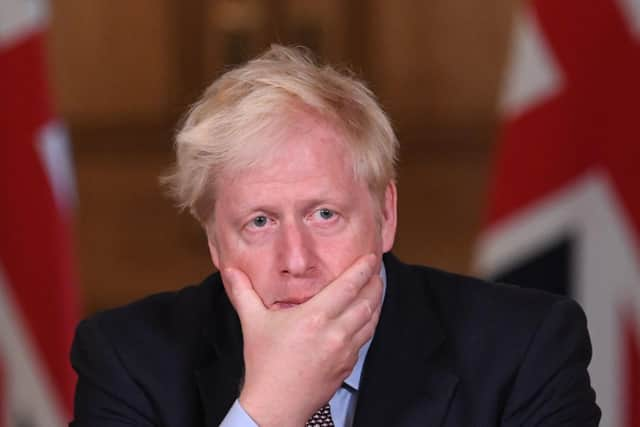Universal Credit cut will hit 'red wall' seats in UK's north the hardest, analysis finds
Some of the areas which are newly held by the Conservatives have more than one in five of their population claiming benefits.
They will lose more than £1,000 a year when the increase ends 18 months after it was first introduced.
Advertisement
Hide AdAdvertisement
Hide AdThe West Midlands Mayor, Andy Street, whose area contains some constituencies worst affected by the cut, is among others who have warned they are “very concerned” about the impact on the communities.


But most red wall MPs have remained quiet rather than risk publicly defying their leader on the issue.
More than 20 per cent of working-age residents in Blackpool South, Burnley and Birmingham Northfield – all gained by the Tories in the 2019 election – claim Universal Credit.
According to data from the Department of Work and Pensions, around a third of Blackpool South’s working-age residents are on Universal Credit, making it not only the most vulnerable Conservative constituency, but the second-most vulnerable in the country.
The MP for the area, Scott Benton, said the increase was “always supposed to be temporary” and argued there were “hundreds of job vacancies, for people looking for work or increased hours”.
He said: “The welfare safety net is there to support people, but it should not be exploited by those who see it as a lifestyle choice and who can work but who choose not to.”
Mr Benton acknowledged the £20 rise had been crucial for many families in his constituency.
He said he would support making it permanent, but only if welfare was reformed to prevent people “abusing” the system. No other red wall MPs elected in 2019 would address the issue in public.
Advertisement
Hide AdAdvertisement
Hide AdOther Conservative seats outside the red wall, such as Great Yarmouth in Norfolk, which has returned a Tory MP since 2005, are also among the hardest hit.
Around a quarter of its working-age population claims some form of Universal Credit.
Reverend Matthew Price, who runs a food bank in the town, said: “I think £20 a week makes a significant difference, particularly when you combine that with food prices rising generally and the rising energy prices.”
Chris Webb, a driver and fundraiser for Blackpool Food Bank, said: “We found that the majority of new people using the food bank over the last 12 months are working people.
"A further cut of over £80 a month from their benefits, on top of utility bills going up and the insecure, seasonal work that covers most of Blackpool is a huge worry.”
Jonathan Reynolds, Labour’s shadow work and pensions secretary, said: “Almost half of Universal Credit claimants are already in work.”
An overwhelming majority of Scottish MSPs had earlier this week voted to urge the UK Government to reverse its decision to end the £20-a-week uplift, warning the cut would plunge tens of thousands of Scots into poverty.
More than half a million Scottish households are in receipt of either Universal Credit or legacy benefits.
Comments
Want to join the conversation? Please or to comment on this article.